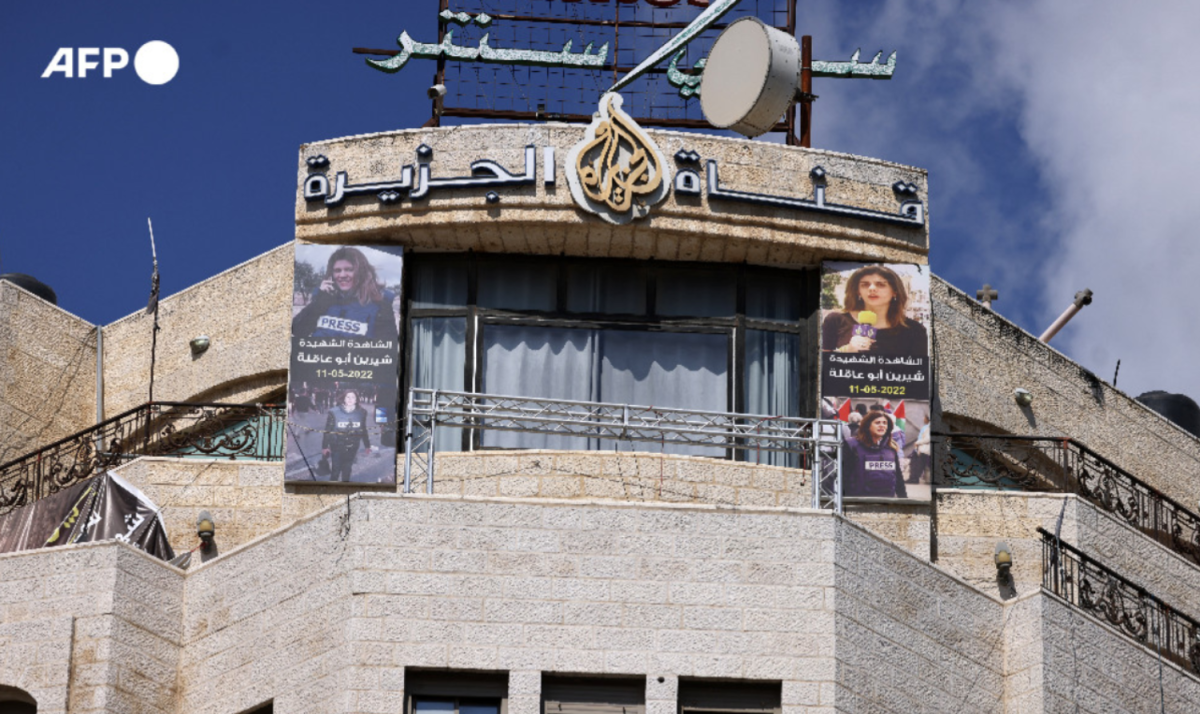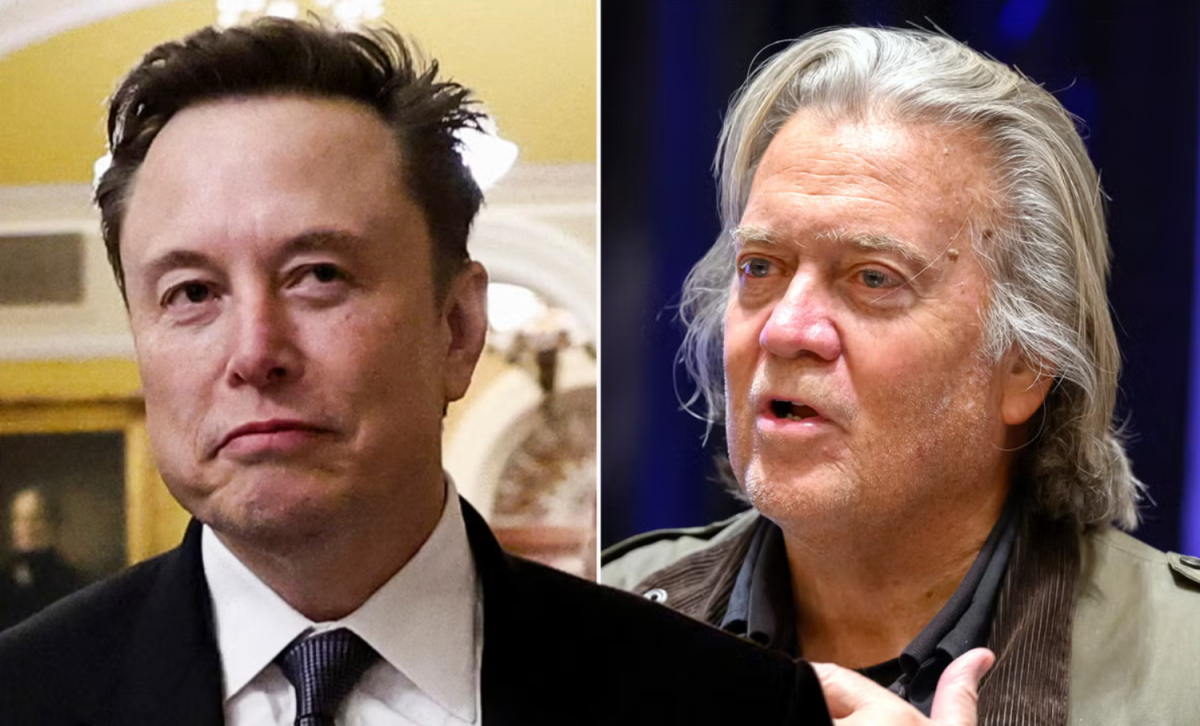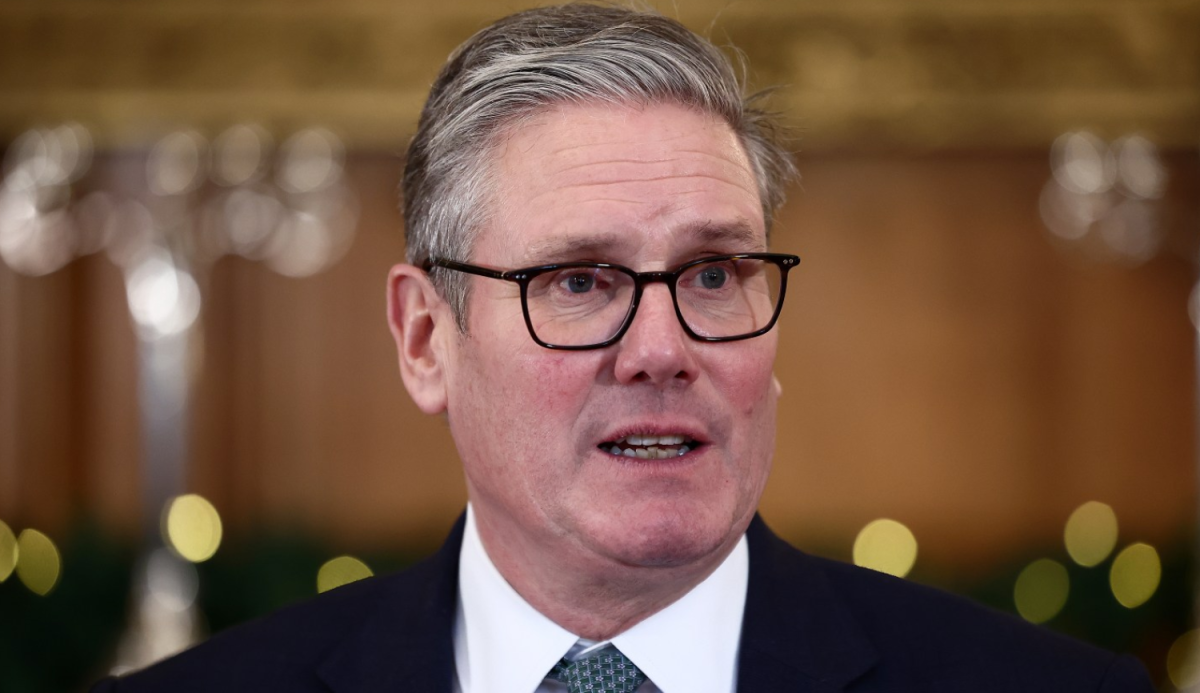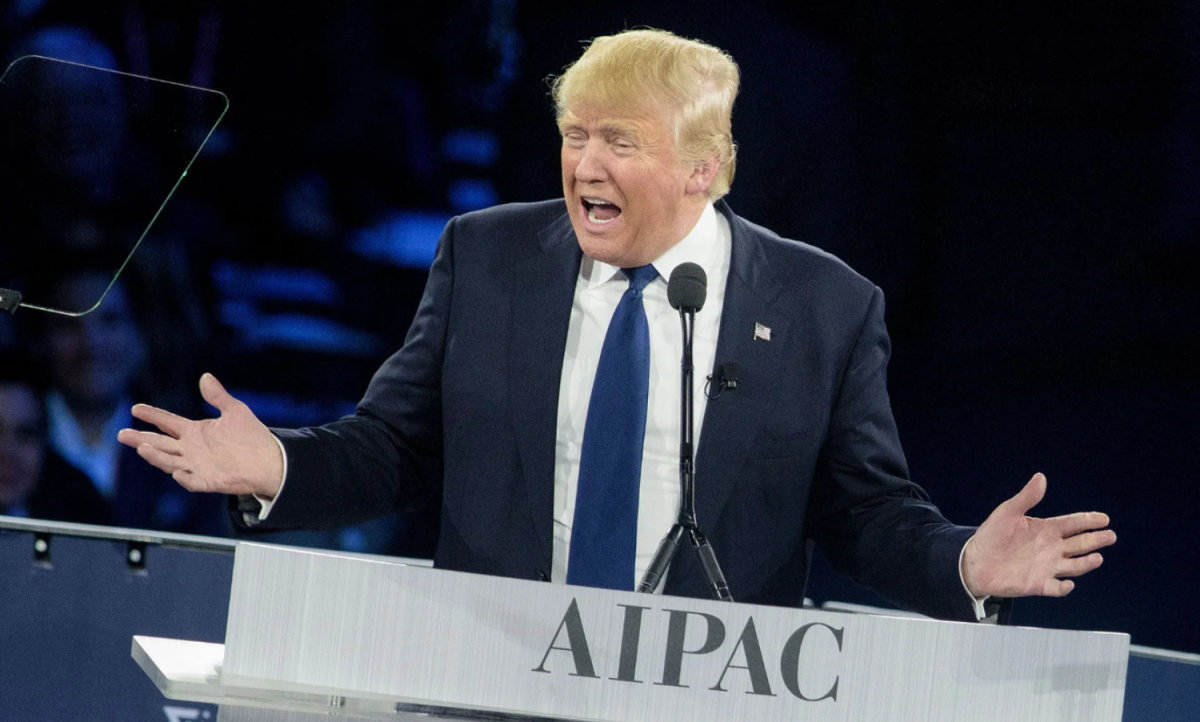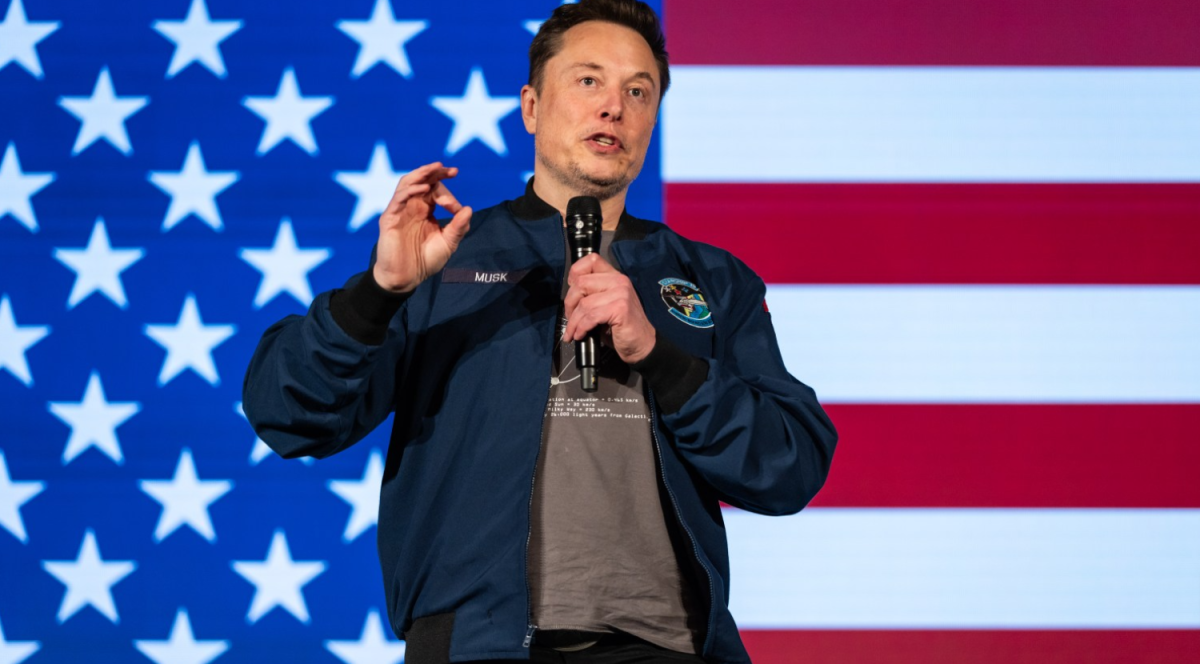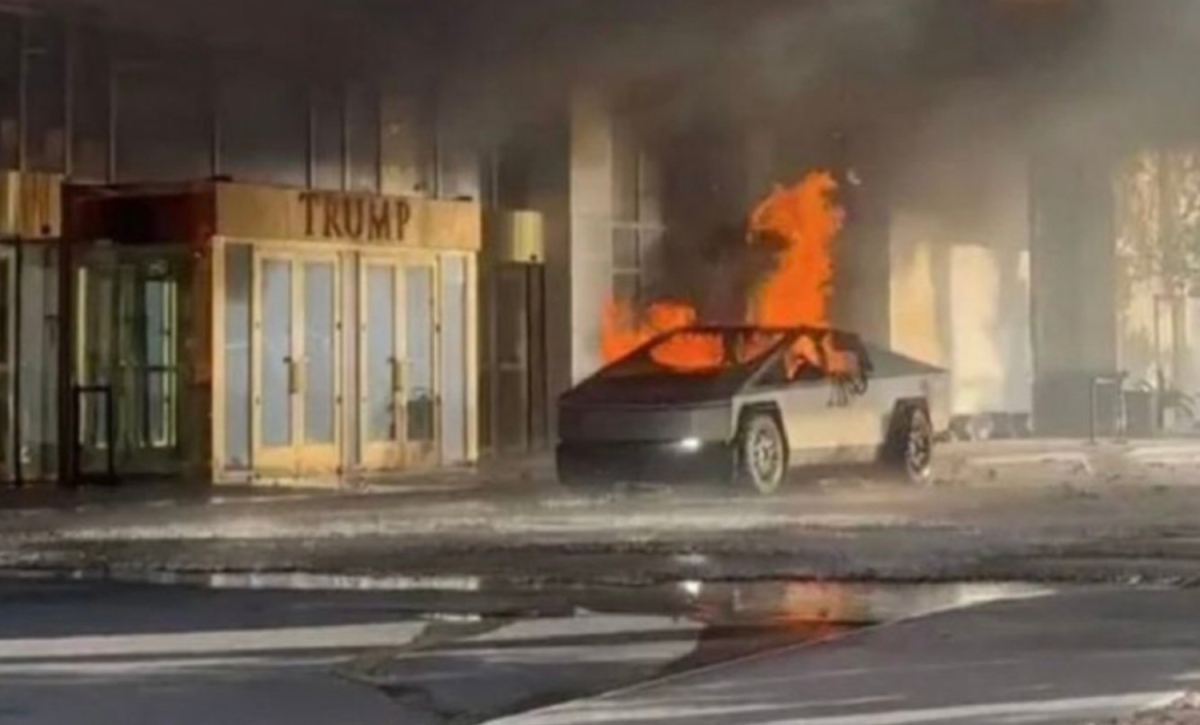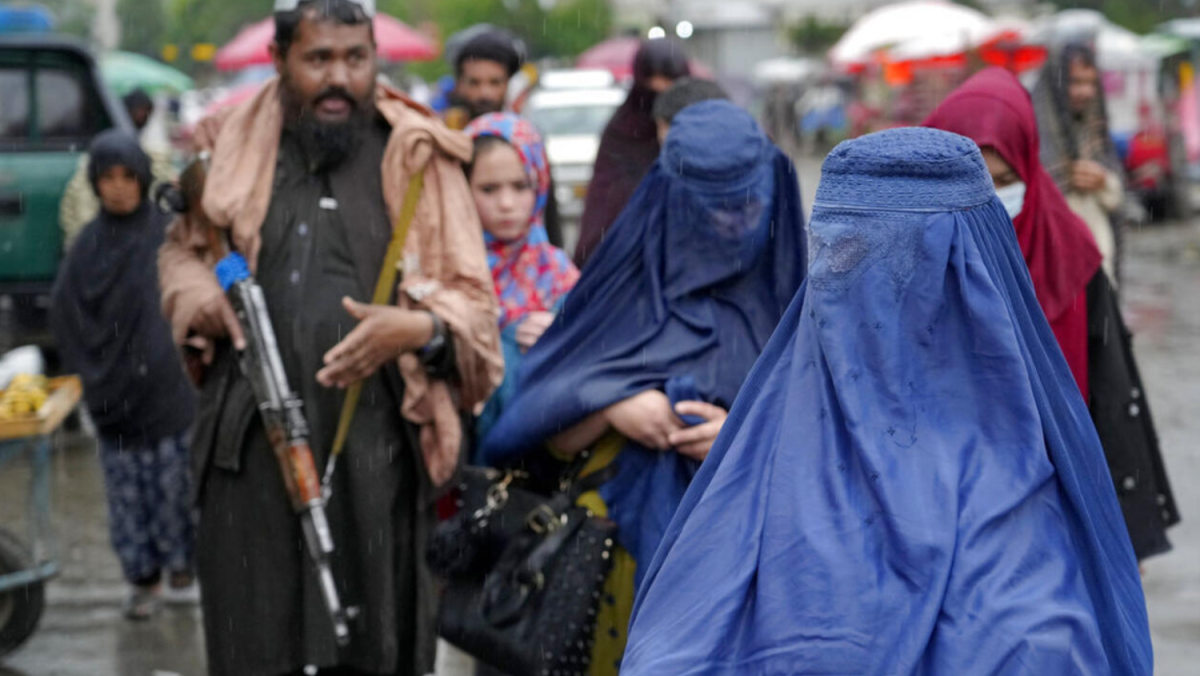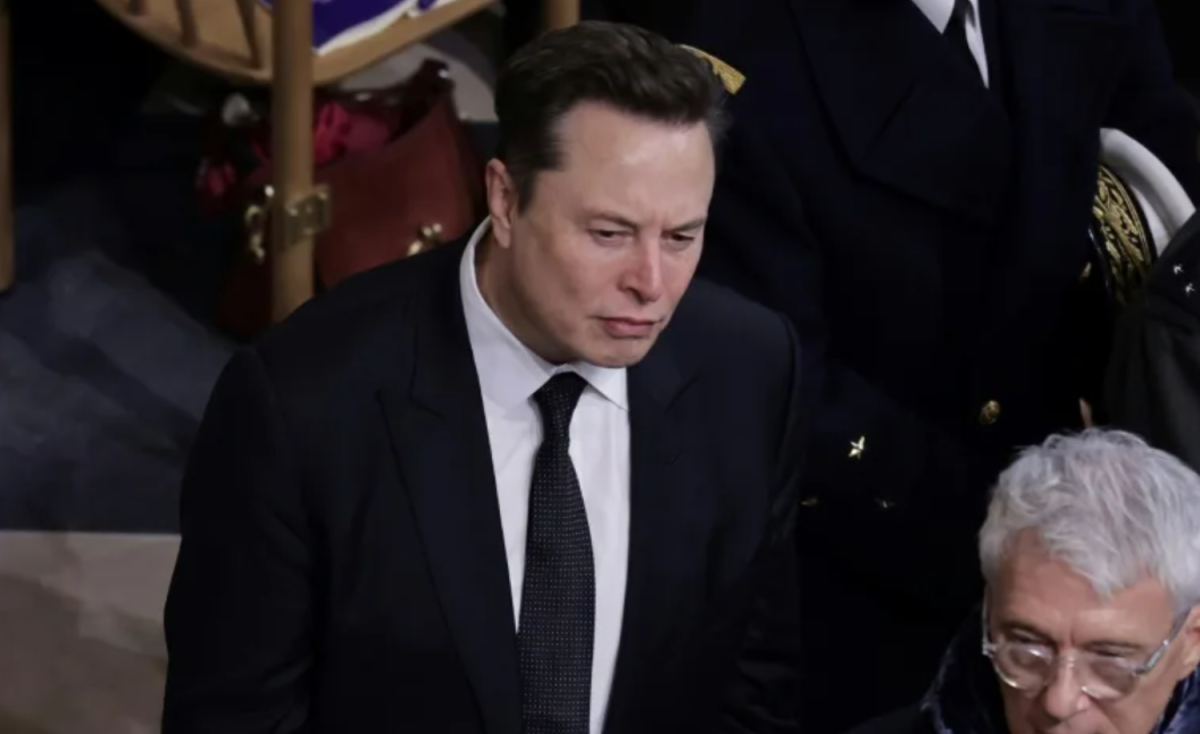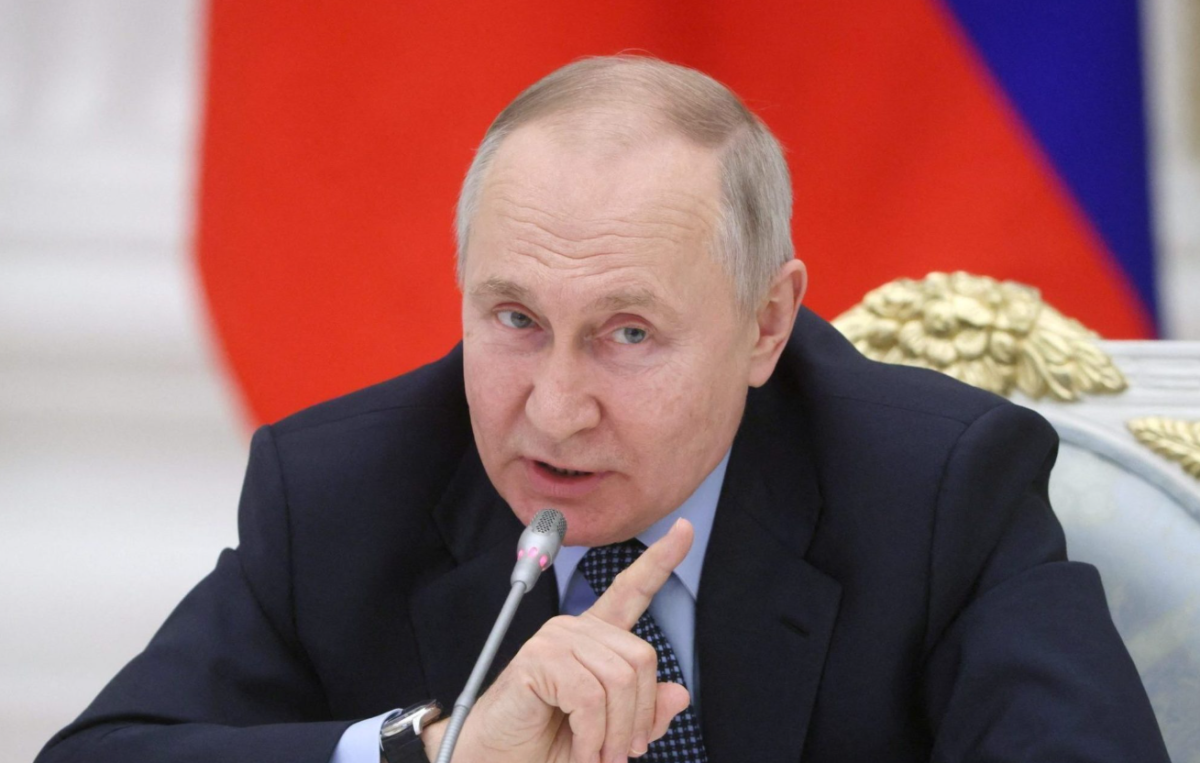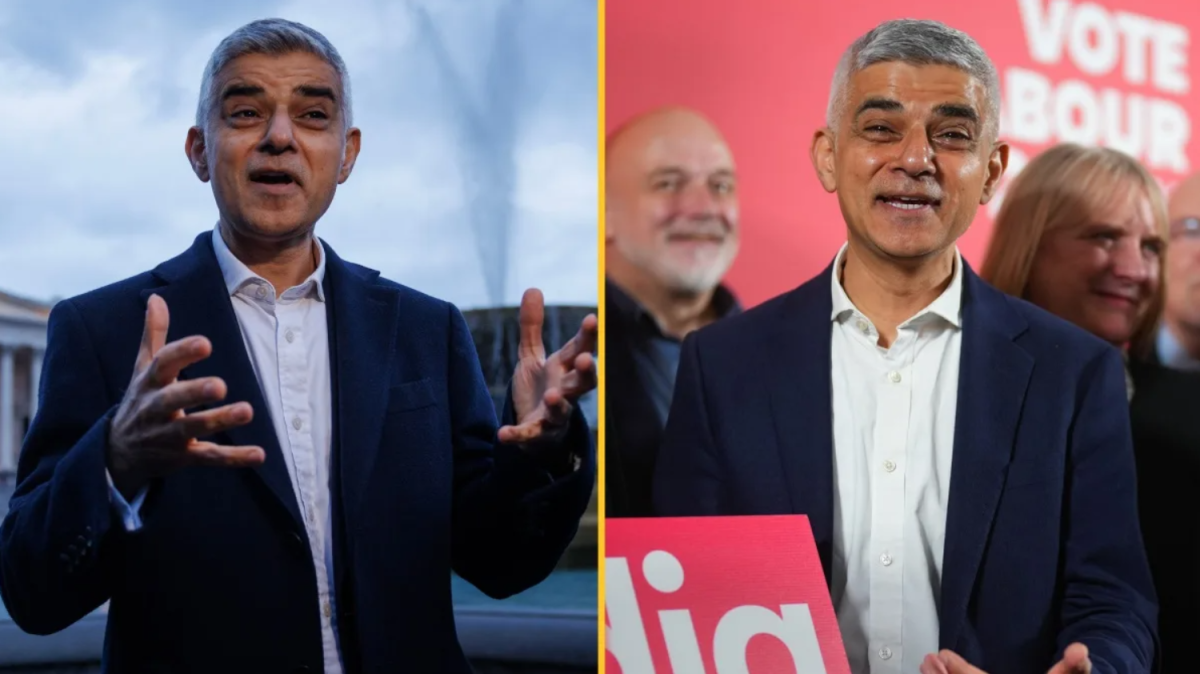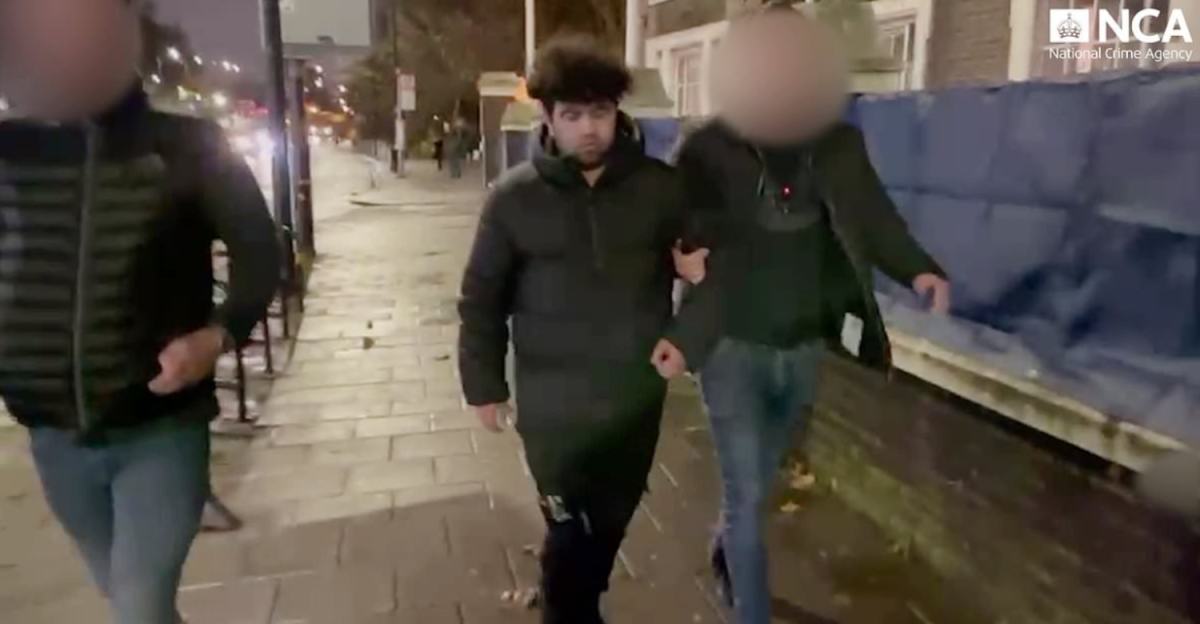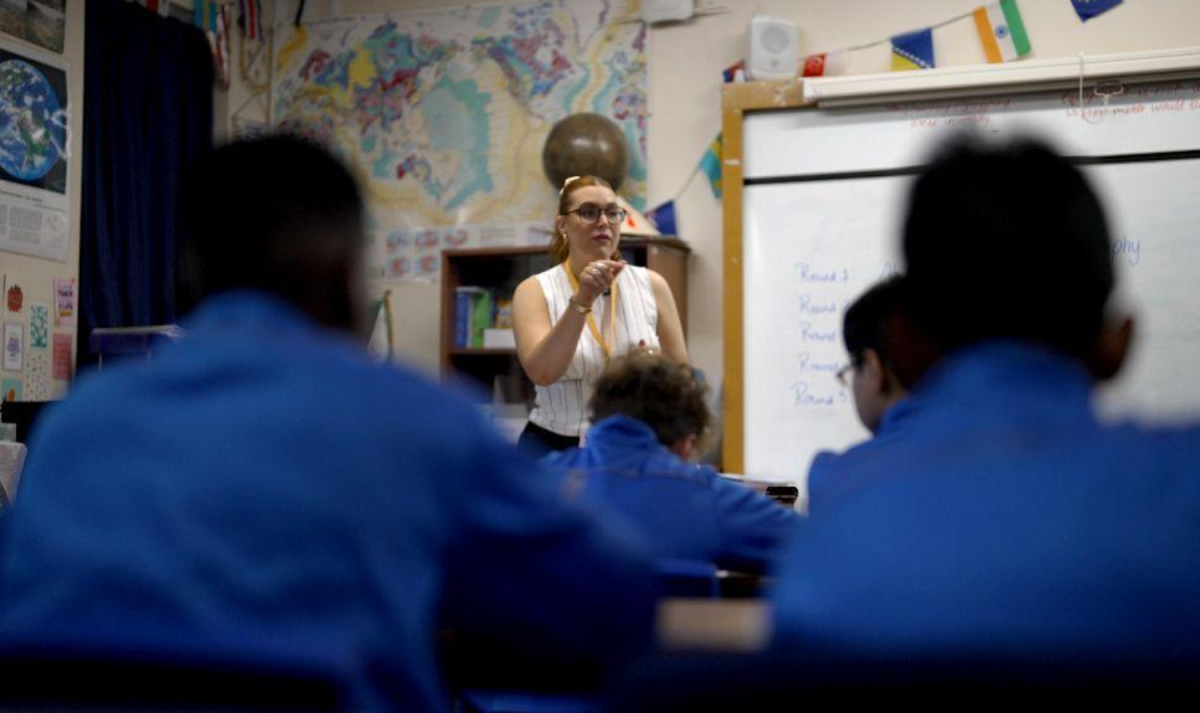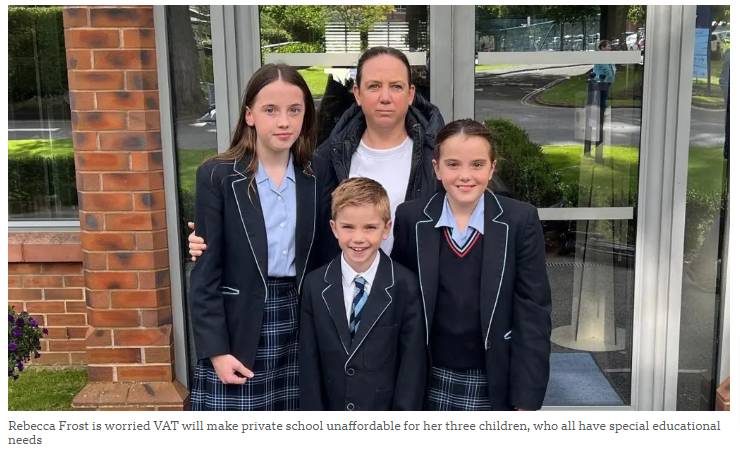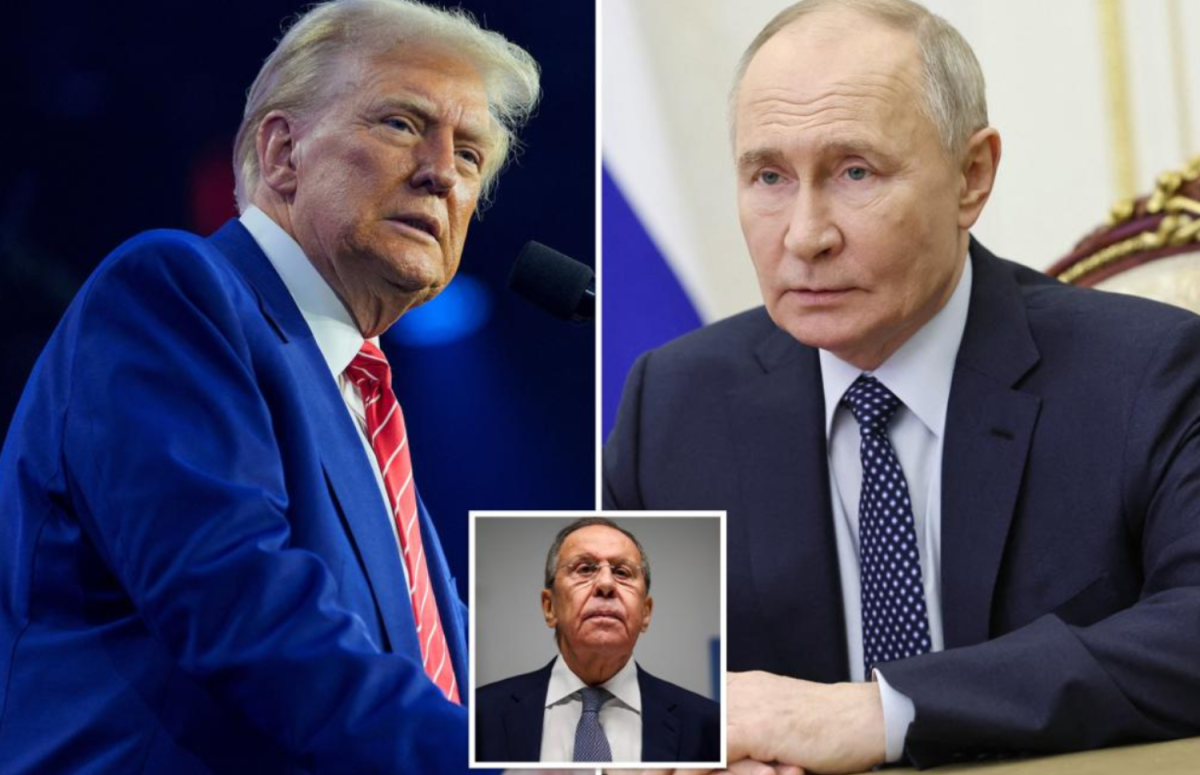-
Posts
10,807 -
Joined
-
Last visited
Content Type
Events
Forums
Downloads
Quizzes
Gallery
Blogs
Everything posted by Social Media
-

Trump Reiterates Warning to Hamas on Hostage Release
Social Media replied to Social Media's topic in World News
Post removed for contravening a number of the forums community standards. @MalcolmB you have just returned from a forum holiday to read the rules. Carry on like that & another will be due. Do not snip quotes out of context and then follow that with false inflammatory claims. -
In February 2007, Andrew McAuley, a fearless adventurer and accomplished kayaker, disappeared in the treacherous waters of the South Pacific Ocean. His bold attempt to become the first person to kayak solo from Australia to New Zealand across the Tasman Sea ended tragically, leaving behind an enduring legacy and an unsettling final image that has recently resurfaced on social media. The haunting photo, retrieved from a memory card found in McAuley’s abandoned kayak, shows the 39-year-old staring into the camera, exhaustion etched across his face. Thick sunblock streaks his skin, and a towering wave looms ominously in the background. His final recorded words, “I may have bitten off more than I can chew,” now echo as a chilling prelude to his fate. McAuley’s kayak was discovered capsized about 50 miles from his intended destination, Milford Sound in New Zealand, mere days before he was set to complete his audacious journey. Despite an extensive search, his body was never recovered. At a memorial service in February 2007, McAuley’s wife, Vicki, honored his adventurous spirit. “You’ll go down in history, too, Ant,” she said, according to the *Sydney Morning Herald*. “And will always be remembered.” Known for his daring exploits, McAuley had already etched his name in the annals of adventure by becoming the first person to kayak 136 miles across the notoriously dangerous Bass Strait in 2003—a feat he achieved in just 25 hours. But the Tasman Sea posed an even greater challenge, one that had defeated others before him. Undeterred, McAuley announced his intention to conquer the crossing. His first attempt, in December 2006, was thwarted within a day when he succumbed to hypothermia. Yet, his resolve remained unshaken, and he set off again in January 2007 for what would become a month-long odyssey of endurance and courage. McAuley’s journey seemed to be progressing smoothly until the final days when he issued a fragmented distress call to the New Zealand Coast Guard. Rescuers deciphered only the words “help” and “sinking” before the transmission was lost. A two-day search ensued, culminating in the recovery of his kayak and belongings but no trace of the man himself. Officials concluded that McAuley likely drowned while asleep in his kayak, a tragic end for someone whose life was defined by his daring pursuits. Yet, his story continues to inspire and provoke reflection on the boundaries of human ambition and the risks that come with pushing them. As the resurfaced image of McAuley circulates online, it serves as both a haunting reminder of his final moments and a testament to the indomitable spirit of a man who dared to venture where few would. His legacy lives on, a symbol of both the beauty and peril of pursuing dreams against insurmountable odds. Based on a report by NYP 2024-01-03
-
Thousands of animals have been subjected to harrowing tests involving explosions, poisons, and nerve agents at the top-secret Porton Down military laboratory in Wiltshire, MailOnline has revealed. Over the past three years, more than 2,000 animals, including pigs, rabbits, monkeys, guinea pigs, and mice, have been used in these experiments, which have drawn fierce criticism from animal rights advocates. The controversial experiments were disclosed following a Freedom of Information request, sparking condemnation from organizations like Peta. Dr. Julia Baines, Peta’s senior science policy manager, criticized the Ministry of Defence (MoD) for its practices. “Peta calls shame on the Ministry of Defence for conducting archaic and appallingly cruel experiments on monkeys, mice, pigs, and other animals, including injecting deadly viruses into their brains and exposing them to nerve agents,” she said. Dr. Baines also highlighted that Britain remains one of the few NATO countries still relying on animals for such testing, despite having access to advanced technology. “It’s reprehensible that with the best technology in the world at its disposal and amid overwhelming public opposition to animal experimentation, the MoD still fails to modernize.” Porton Down is renowned as the UK’s premier research facility for chemical weapons and deadly diseases. Under constant armed guard, the laboratory houses some of the most dangerous pathogens known to humanity, including Ebola, anthrax, and plague. The site has also played a key role in national security, notably confirming the use of a Novichok nerve agent in the poisoning of former Russian spy Sergei Skripal and his daughter in 2018. The MoD defends the animal testing, citing its necessity for life-saving research aimed at protecting British troops. According to a spokeswoman, “The Defence Science and Technology Laboratory conducts experiments ethically, in line with legislation. As well as work on emerging defence technology, the Defence Science and Technology Laboratory develops new vaccines, therapies, and treatments that can save people’s lives. They are also committed to reducing the number of experiments on animals by only applying for a licence if research cannot be achieved any other way.” Despite these assurances, the details of the experiments paint a grim picture. Past procedures have reportedly included exposing live pigs to mustard gas, infecting monkeys with anthrax, and using guinea pigs in nerve agent studies. Other tests have involved blowing up pigs wearing body armor to simulate battlefield trauma and assess the effectiveness of next-generation flak jackets. The genetic similarity between pigs and humans has made them a preferred subject for simulating battlefield injuries. The data reveals an increasing trend in animal testing at Porton Down over the last three years. In 2021, 605 animals were killed, a figure that rose to 644 in 2023. The year 2022 saw a sharper spike, with 795 animals used, coinciding with heightened global tensions following Russia’s invasion of Ukraine. Mice made up the majority of the test subjects, with 1,797 killed between 2021 and 2023. The remaining figures include 64 guinea pigs, 97 marmosets, 83 pigs, and three rabbits. While the MoD insists that all experiments are conducted ethically and in accordance with legislation, critics remain unconvinced. The ongoing use of animals in such testing has ignited widespread calls for the adoption of alternative methods and the modernization of research practices. As the debate continues, the ethical and moral implications of these experiments remain under intense scrutiny. Based on a report by Daily Mail 2024-01-03
-
The number of migrants crossing the English Channel in small boats rose significantly in 2024, marking the second-highest annual total on record. According to Home Office statistics, 36,816 individuals made the perilous journey, a 25 percent increase from 2023. The surge intensified after Sir Keir Starmer assumed office in July, with arrivals rising by 29 percent during his tenure compared to the same period in 2023. This marked a sharp contrast with the smaller increase under former Prime Minister Rishi Sunak earlier in the year, when crossings grew by 19 percent. While Sunak's tenure saw incremental growth, Starmer’s period in office coincided with a dramatic escalation, drawing criticism from opposition parties. Shadow Home Secretary Chris Philp described the rise as evidence that Labour had "totally failed on illegal immigration by small boat," adding, "Over three times more illegal immigrants crossed in December compared to last year – an insult to the British people. Labour has lost control of our borders." Reform Party deputy leader Richard Tice echoed these sentiments, stating, "Far from smashing the gangs, it’s only getting worse under Labour. Labour needs to start putting British people first and not allowing our borders to be at the whim of the weather." The year’s data underscores the continuing challenge posed by small boat crossings. Only 2022 surpassed 2024 in the number of arrivals, with a record 45,774 migrants that year. Before this surge, the numbers were comparatively low, with just 299 crossings recorded in 2018 and 1,843 in 2019. However, as the issue gained prominence, the figures climbed steadily to 8,466 in 2020 and 28,526 in 2021. The primary nationalities of migrants reflected ongoing global crises. Afghan nationals accounted for the largest group, representing 17 percent of arrivals in the first nine months of 2024. They were followed by individuals from Vietnam (13 percent), Iran (12 percent), and Syria (12 percent). The Starmer administration’s approach diverged sharply from that of the preceding Conservative government. One of Starmer’s first actions as Prime Minister was to scrap the controversial Rwanda deportation plan, which he declared "dead and buried." Instead, Labour shifted focus to dismantling smuggling networks and enhancing international cooperation. "If the boats and the engines aren’t available, it obviously makes it much more difficult for these crossings to be made," Starmer remarked, emphasizing the importance of targeting the infrastructure behind the crossings. Home Secretary Yvette Cooper underscored the government’s moral responsibility to address the issue, stating the need to "go after" smuggling gangs. However, she declined to set a specific deadline for reducing arrivals and appeared to dismiss the idea of expanding safe and legal routes for asylum seekers. The final days of 2024 highlighted the unpredictable nature of the crisis. While blustery weather conditions halted crossings on December 30 and 31, 291 individuals successfully reached the UK on December 29 in six small boats. The year’s events illustrate the complexity of managing migration and the challenges of balancing domestic expectations with humanitarian obligations. Based on a report by Daily Telegraph 2024-01-03
-
Legendary musician Neil Young has announced his withdrawal from the upcoming Glastonbury Festival, citing concerns over the BBC's "corporate control" of the event. Young, who had planned to perform with his new band, The Chrome Hearts, expressed disappointment in a statement on his website, calling the festival a "corporate turn-off." "The Chrome Hearts and I were looking forward to playing Glastonbury, one of my all-time favourite outdoor gigs," Young wrote. "We were told that the BBC was now a partner in Glastonbury and wanted us to do a lot of things in a way we were not interested in. It seems Glastonbury is now under corporate control and is not the way I remember it being." Young, 79, made it clear that the decision was final. "We will not be playing Glastonbury on this tour because it is a corporate turn-off, and not for me like it used to be. Hope to see you at one of the other venues on the tour. Love Neil. Be well." The BBC and Glastonbury organizers have yet to comment on the matter. The festival, known for its eclectic line-ups and cultural significance, has partnered with the BBC since 1997. Emily Eavis, who co-organizes the event with her father, Michael, has previously described the broadcaster’s live coverage as “an integral part of what we do at Glastonbury.” While Young did not elaborate on the specific requirements imposed by the BBC that led to his decision, his concerns highlight a broader debate about the influence of corporate partnerships on artistic freedom. This marks a significant moment for Glastonbury, a festival steeped in tradition and independence, which Young himself has celebrated in the past. He headlined the event in 2009, delivering a memorable two-hour performance that included classics such as *Heart of Gold* and *Rockin’ In The Free World.* The 2025 Glastonbury Festival is scheduled to take place from June 25-29. Thus far, the only confirmed performer is Sir Rod Stewart, who will appear in the iconic "Legend" slot. Tickets for the event, priced at £373.50, have already sold out. Young’s withdrawal has left fans disappointed but also sparked discussions about the balance between maintaining the festival’s spirit and embracing modern partnerships. As Young’s open letter suggests, his departure from Glastonbury may resonate beyond the festival grounds, serving as a reminder of the challenges artists face in navigating an increasingly corporate-dominated music industry. Based on a report by Daily telegraph 2024-01-03
-
The FBI has discovered more than 150 explosive devices during a raid on a farm in Isle of Wight County, Virginia, marking the largest seizure of finished bombs in the agency’s history. The raid, conducted on December 17, resulted in the arrest of Brad Spafford, who lived on the 20-acre property with his wife and two young children. The investigation began after a tip-off from a neighbor, who reported suspicious activity on the farm. The neighbor, a former law enforcement officer, wore a recording device during a visit to the property earlier this year, gathering evidence that prompted the FBI to act. The devices were found scattered across the property, with many located in a detached garage. According to court documents, the bombs were sorted by color and some were labeled “lethal.” Additional explosive devices were discovered inside the home, including several stored unsecured in a backpack marked "#nolivesmatter," a slogan associated with a far-right, anti-government movement promoting extremist violence. The FBI also uncovered a jar of HMTD, a highly volatile and unstable explosive capable of detonating from minor temperature changes. The jar was found in a freezer alongside food accessible to the children living in the home. Some bombs were rigged into a wearable vest, adding to the alarming nature of the find. Spafford allegedly used photos of President Joe Biden for target practice and expressed hope for the assassination of Vice President Kamala Harris. According to court papers, he had recently pursued sniper-rifle training and was reportedly planning to fortify the farm with a turret-mounted .50-caliber firearm. The neighbor who alerted authorities also revealed that Spafford had lost three fingers in 2021 while working with a homemade explosive but continued manufacturing bombs despite the injury. So far, Spafford has been charged with possession of an unregistered short-barrel rifle, but prosecutors have indicated that additional charges are likely. His attorney has denied that he poses a threat to the community, describing the government’s allegations as “rank speculation and fear mongering.” “There is not a shred of evidence in the record that Mr. Spafford ever threatened anyone, and the contention that someone might be in danger because of their political views and comments is nonsensical,” the defense lawyer argued. Despite the attorney’s assertions, the cache has raised serious concerns. In addition to the bombs, investigators say Spafford subscribed to conspiracy theories, claiming that missing children in the news were being taken by the federal government to be trained as school shooters. A federal judge initially ordered Spafford’s release under electronic monitoring, but that decision is on hold as prosecutors push for his continued detention, citing the immense risk posed by the explosive devices and his extremist views. The investigation continues as authorities assess the full extent of the threat posed by the largest stockpile of explosives ever seized by the FBI. Based on a report by BBC 2024-01-03
-
The Palestinian Authority announced on Wednesday that it has suspended all broadcasts by the Qatar-based network Al Jazeera throughout Palestinian territories, accusing the channel of disseminating "inciting content," as reported by the official Wafa news agency. A ministerial committee, comprising representatives from the ministries of culture, interior, and communications, issued the directive. The committee stated, "The decision also includes temporarily freezing the work of all journalists, employees, crews, and affiliated channels until their legal status is rectified due to Al Jazeera's violations of the laws and regulations in force in Palestine." The report elaborated that the move was prompted by Al Jazeera's "insistence on broadcasting inciting content and reports characterised by misinformation, incitement, sedition, and interference in Palestinian internal affairs." An Al Jazeera staff member in Ramallah confirmed to AFP that the network's office had received the suspension notice. Subsequently, the channel aired footage of what appeared to be Palestinian security personnel delivering the orders to the office. However, Al Jazeera has yet to publicly respond to the decision. The move sparked condemnation from various groups, including Hamas, which labelled the suspension as an infringement on civil liberties. "This decision aligns with a series of recent arbitrary actions taken by the Authority to curtail public rights and freedoms and to reinforce its security grip on the Palestinian people," Hamas said in a statement. They urged the Palestinian Authority to reverse its decision immediately, emphasizing the importance of preserving media freedom to "expose the occupation and support the steadfastness of our people." Islamic Jihad, a Gaza-based group allied with Hamas, also criticized the suspension. "We condemn the authority's decision to close Al Jazeera's office in Palestine when our people and our cause are in dire need to convey their suffering to the world," the group stated. Based on a report by AFP 2024-01-03 Related Topic: Crackdown in West Bank: Palestinian Authority’s Battle Against Militants Al Jazeera’s Terrorist Ties and the Controversy Over Its Operations Al Jazeera journalist reportedly moonlights as Hamas commander claims IDF Israeli Forces Rescue Hostages, Held By Al Jazeera & Palestine Chronicle Journalist Exposing What Others Prefer to Hide The Dismal State of Hamas Propoganda by Media
-
Former White House strategist Steve Bannon issued a stark warning to Elon Musk, accusing the tech mogul of undermining American workers by supporting visas for skilled foreign laborers. On Tuesday, during his "War Room" podcast, Bannon lashed out, cautioning Musk and others in the tech industry that they would face fierce opposition from MAGA supporters unless they embraced a stricter "America First" stance on immigration. The tech billionaire has faced backlash from MAGA circles for supporting programs like the H-1B visa, which provides opportunities for skilled foreign workers in sectors like technology. Bannon, a staunch critic of such policies, argued that these visas have displaced American workers and eroded the country’s middle class. He even called for a complete halt to all immigration, stating, “We need a 100% moratorium on all immigration until we get this thing sorted.” This clash isn’t Musk’s first brush with controversy over immigration. The entrepreneur recently made headlines with a fiery comment on X (formerly Twitter), directing opponents of H-1B visas to “F*** yourself in the face.” Musk’s call for a more “positive” and “beautiful” social media conversation shortly afterward struck many as ironic, given his own confrontational tone. Bannon, however, wasn’t swayed by Musk’s appeals for civility. Instead, he doubled down, demanding “reparations” from Musk and other tech leaders for what he views as the systemic displacement of American workers. “The visa issue is central to the way they gutted the middle class in this country,” Bannon argued, expressing his belief that tech industry policies have betrayed the very ethos of Trump’s "America First" agenda. Musk’s stance has also put him at odds with some of Donald Trump’s most loyal supporters. While Trump himself has praised the contributions of foreign workers under H-1B visas, this has led to friction within his base, many of whom see such policies as contrary to his promises to protect U.S. jobs. As tensions between Bannon and Musk escalate, the debate over immigration, labor, and the future of America’s workforce shows no sign of abating. Whether Musk will adjust his position or continue to stand firm against critics like Bannon remains to be seen. Based on a report by The Independent 2024-01-03
-
Prime Minister Keir Starmer has found himself in a renewed conflict with tech billionaire Elon Musk, following Musk's claim that "very few companies" are interested in investing in the UK. Musk's criticism, delivered via his social media platform X, accused the "current administration" of fostering policies that dissuade investment, sparking yet another row between the two high-profile figures. Musk’s comments come as a jab at Starmer's first six months in office, a period during which the Labour leader has focused on positioning his government as pro-business and pro-growth. In response to Musk’s assertion, a spokesperson for No. 10 Downing Street firmly defended the administration, pointing to substantial progress made since the general election. “I’m not going to get into commentary on individual comments," said the prime minister’s official spokesman. "But if you look at what’s happened since the election, you’ve seen £63 billion of additional investment from the investment summit. The government has addressed key concerns from businesses, particularly around stability, both politically and economically.” The spokesperson reiterated that Starmer’s government remains "unashamedly pro-growth and pro-business." This latest episode follows a string of tense exchanges between Musk and the UK government. During the summer riots in Southport, Musk controversially claimed that civil war in the UK was “inevitable.” His remarks, compounded by his engagement with posts from far-right activist Stephen Yaxley-Lennon, also known as Tommy Robinson, and his retweeting of a fabricated headline about rioters being sent to detention camps in the Falkland Islands, drew widespread condemnation. The summer controversy reportedly influenced Musk’s exclusion from a prominent investment summit in London. At the time, Musk criticized the UK government, stating: “I don’t think anyone should go to the UK when they’re releasing convicted paedophiles in order to imprison people for social media posts.” Despite the friction, Musk has maintained connections with British political figures. While Rishi Sunak served as prime minister, Musk attended an AI safety summit as a guest of honor and participated in an event with Sunak. This stark contrast in relationships has added to the complexity of Musk's interactions with the current administration. Most recently, Musk rejected calls to build a new Tesla plant in Scotland, reiterating his skepticism about the UK's business climate under Starmer. "Very few companies will be willing to invest in the UK with the current administration," he posted on X on Sunday. Adding fuel to the fire, Musk is rumored to be considering a multi-million dollar donation to Nigel Farage’s Reform UK party, further emphasizing his alignment with figures outside the mainstream political establishment. The tumultuous relationship between Musk and the Labour government reflects broader tensions over the UK’s business policies and political stability. While Starmer’s administration highlights billions in new investments as evidence of progress, Musk’s public criticism signals persistent skepticism from influential global entrepreneurs. Based on a report by Daily Telegraph 2024-01-03
-
The FBI has disrupted an alleged plan to target employees at a Florida office of the American Israel Public Affairs Committee (AIPAC), according to court documents filed on Monday. Forrest Kendall Pemberton, the accused, was arrested after traveling to Plantation, Florida, armed with several firearms, including an AR-15 rifle, reportedly intending to scout the location before returning with weapons. The affidavit, signed by FBI Special Agent Taylor Nicklin, outlines Pemberton’s activities leading up to his arrest. On December 25, the first night of Hanukkah, Pemberton was intercepted in a ride-share vehicle while carrying firearms. Although the court documents do not explicitly name AIPAC, they describe the targeted organization as one that “advocates and lobbies for ‘pro-Israel policies that strengthen and expand the U.S.-Israel relationship,’” language directly associated with AIPAC’s mission. The case came to light after Pemberton’s father contacted authorities on December 23, reporting that his son had left home and left behind a troubling letter. In the letter, Pemberton expressed intentions to "close the loop," "stoke the flames," and bid farewell to his family. A subsequent investigation revealed that his computer had been used for searches and Google Maps queries related to AIPAC’s former Plantation office, as well as IRS offices. Pemberton’s movements suggested careful planning. On December 22, he checked into a hotel two miles from AIPAC’s former location and checked out the following day. He was later tracked to a Tallahassee hotel, where he was seen on Christmas Day entering a ride-share vehicle with what appeared to be a soft rifle case. In conversations with law enforcement, Pemberton admitted he chose AIPAC as his target due to its “political influence” and proximity. Frustrated with the “status quo,” he indicated he had sought to "make a change." However, he claimed he ultimately decided against taking any criminal action. “It would have been a one-way ticket. In Plantation, I decided I wasn’t ready. I gave up,” Pemberton reportedly told police, according to the affidavit. The case underscores the importance of vigilance in preventing potential acts of violence, particularly against organizations with high political visibility. The FBI’s swift intervention prevented what could have been a devastating attack during a significant holiday period. Based on a report by The Hill 2024-01-03
-
Elon Musk has sparked controversy by calling for the release of Tommy Robinson from prison while criticizing prominent UK political figures, including Labour leader Sir Keir Starmer. The billionaire and founder of Tesla shared a series of tweets supporting Robinson, whose real name is Stephen Yaxley-Lennon, and accused Starmer of failing to address grooming gangs in Oldham during his tenure as head of the Crown Prosecution Service (CPS) from 2008 to 2013. Musk promoted a YouTube documentary by Robinson, claiming it sheds light on political biases within the judicial system against right-wing figures. He described the video as "worth watching" and suggested it illustrates deeper systemic issues. Musk further called for a new election in Britain, citing Starmer's alleged unpopularity as a key reason. The entrepreneur also targeted Labour MP Jess Phillips, the minister for safeguarding, after reports from GB News suggested she had dismissed calls for a public inquiry into the grooming gangs in Oldham. Musk tweeted, “They oppose an inquiry because it will show that those in power were complicit in the cover-up.” He went on to state that Phillips “deserves to be in prison” for her stance on the matter. In another tweet, Musk directly criticized Starmer’s record, writing: “In the UK, serious crimes such as rape require the Crown Prosecution Service’s approval for the police to charge suspects. Who was the head of the CPS when rape gangs were allowed to exploit young girls without facing justice? Keir Starmer, 2008-2013. Who is the boss of Jess Phillips right now? Keir Starmer. The real reason she’s refusing to investigate the rape gangs is that it would obviously lead to the blaming of Keir Starmer (head of the CPS at the time).” Phillips defended her position by stating that the Home Office believes the matter can be handled at the local council level. She emphasized that Oldham council could lead its own inquiry without government intervention. Meanwhile, Starmer has countered Musk's claims, pointing to actions he took during his tenure as director of public prosecutions. In 2013, Starmer initiated legal proceedings against the Rochdale grooming gangs and implemented reforms in how the CPS addresses cases of child sexual abuse. Starmer also criticized previous Conservative governments for failing to introduce a mandatory duty to report safeguarding issues. He has maintained that considerations of ethnicity or “political correctness” should never interfere with bringing offenders to justice. Robinson, a controversial figure known for his far-right activism, is currently serving an 18-month prison sentence after admitting to breaching an injunction. This follows a successful libel suit against him in 2021. Musk’s public support for Robinson and his critique of the UK’s handling of grooming gang cases have drawn both praise and criticism, reigniting debates over justice, political accountability, and free speech. Based on a report by Daily Telegraph 2024-01-03
-
A bunch of links that do not support the claims and also ignore the many links to Hamas refusing to complete deals has been removed along with link to a subscription site and a way off topic repetative link to Netanyahu that is covered in many existing topics. The topic here is: Israeli military loosened rules of engagement at start of Gaza war If you want to discuss the hostage siutation there are plenty of topics on that already including these latest ones. New Report to UN on Horrific Torture & Sexual Abuse of Hostages by Hamas https://aseannow.com/topic/1347509-new-report-to-un-on-horrific-torture-sexual-abuse-of-hostages-by-hamas/ Trump orders Hostages released https://aseannow.com/topic/1345212-trump-orders-hostages-released/
-
Shamsud-Din Jabbar, the perpetrator of the New Orleans terror attack that claimed 15 lives on New Year’s Day, lived a life that starkly contrasted his early promise as a military veteran and IT specialist. Once a decorated serviceman, Jabbar's descent into financial and personal ruin ended in a horrific act of violence, marking one of the deadliest attacks since 9/11. Authorities identified Jabbar, 42, as an American-born Army veteran who carried out an ISIS-inspired assault on Bourbon Street. Strapped to the rented Ford F-150 Lightning EV truck he used in the attack was an ISIS flag, a chilling testament to his radicalization. Jabbar, originally from Houston, served actively in the Army for nearly a decade, deploying to Afghanistan from February 2009 to January 2010. His service, which extended from 2007 to 2015, saw him rise to the rank of staff sergeant. Following his active duty, he served as a reservist until 2020. In a 2020 YouTube video promoting his real estate business, Jabbar appeared as a clean-cut professional, describing himself as a reliable Texan whose military service taught him “the meaning of great service.” However, by the time of the attack, he was living in a squalid trailer park on the outskirts of Houston. When reporters visited the trailer park hours after the attack, they found a dilapidated environment where geese, chickens, and sheep roamed freely in Jabbar’s yard. His neighbors, primarily immigrants, were tight-lipped, with one woman speaking only Urdu, Pakistan’s national language. Jabbar’s residence was within walking distance of Masjid Bilal, a local mosque. Attempts to contact mosque representatives went unanswered. Authorities disclosed that videos referencing the Quran were found among Jabbar’s belongings, offering potential insights into his motivations. Law enforcement also revealed that Jabbar traveled to Egypt for ten days last year, though the purpose of the trip remains unclear. His radicalization and subsequent act of terror underscore the complexities of his troubled life, which spiraled from the stability of military service into a tragic collision of ideology and violence. Based on a report by NYP 2024-01-02
-
An explosion involving a Tesla Cybertruck outside the Trump Las Vegas hotel on Wednesday morning is being investigated as a potential act of terrorism, according to law enforcement sources. The incident occurred at approximately 8:40 a.m. local time and was captured on surveillance footage that has since circulated widely on social media. “A 2024 Cybertruck pulled up to the front of the hotel, and in fact, I can tell you, it pulled right up to the glass entrance doors of the hotel. We saw that smoke start showing from the vehicle, and then a large explosion from the truck,” said Las Vegas Metropolitan Sheriff Kevin McMahill during a press briefing. The explosion occurred shortly after a separate attack on Bourbon Street in New Orleans, where a U.S. military veteran reportedly flying an ISIS flag rammed a pickup truck into a crowd celebrating New Year’s Eve. The FBI is treating the New Orleans incident as an act of terrorism. Authorities have not yet disclosed the identity or gender of the Cybertruck driver but indicated there is no evidence linking the two events at this time. “We are very well aware of what has happened in New Orleans,” Sheriff McMahill stated. “I just want to say to all of the people here in Las Vegas [that] there does not appear to be any further threat to our community here now.” Investigators revealed that the Cybertruck had been rented through Turo, the same app used to rent the pickup truck involved in the New Orleans attack. The vehicle's bed was reportedly loaded with fireworks-style mortars. Officials are working to determine if these explosives were deliberately ignited. Tesla CEO Elon Musk also addressed the incident, clarifying that the explosion was unrelated to the functionality of the vehicle itself. “We have now confirmed that the explosion was caused by very large fireworks and/or a bomb carried in the bed of the rented Cybertruck and is unrelated to the vehicle itself. All vehicle telemetry was positive at the time of the explosion,” Musk wrote on X. The investigation remains ongoing as officials piece together details surrounding the blast and its possible motivations. Based on a report by NYP 2024-01-02
-
On Christmas Eve, NASA’s Parker Solar Probe achieved a historic milestone by flying closer to the Sun than any human-made object before it. As it swooped through the Sun's atmosphere, the spacecraft, operating autonomously without communication with Earth, continued its mission to unravel the mysteries of solar phenomena and their effects on space weather. This event underscores a pivotal question for the future of space exploration: Will humans remain necessary, or will robots equipped with advanced artificial intelligence (AI) take the lead? Robotic missions have dominated space exploration for six decades, reaching destinations far beyond human capability. The Parker Solar Probe endured temperatures exceeding 1000°C during its flyby, highlighting the extremes robots can survive. Andrew Coates, a physicist from University College London, notes, "For serious space exploration, I much prefer robotics. They go much further and do more things." Lord Martin Rees, the UK’s Astronomer Royal, shares this perspective, arguing that taxpayer money should not fund human space travel due to its risks and costs. "The only case for sending humans is as an adventure, an experience for wealthy people, and that should be funded privately," he asserts. Human spaceflight, however, has its advocates. Dr. Kelly Weinersmith, a biologist at Rice University, points out the intangible value of human presence in space. "Prestige will always be a reason that we have humans in space. It seems to have been agreed upon as a great way to show that your political system is effective and your people are brilliant." While robots excel in inhospitable environments and can conduct scientific research with precision, they have limitations. Mars rovers, for instance, move at a sluggish 0.1 mph, and their processors are significantly less powerful than modern smartphones. Despite advancements in AI, such as NASA’s Curiosity rover autonomously performing tasks on Mars, robots lack the adaptability and speed of human decision-making. Dr. Ian Crawford, a planetary scientist, observes, "AI can beat human beings at chess, but does that mean they'll be able to beat human beings in exploring environments? I just don't think we know." Still, robots like NASA’s humanoid Valkyrie and Robonaut show promise in supporting human missions. These machines can perform maintenance, operate tools, and secure habitats when astronauts are absent. Dr. Shaun Azimi, who leads NASA's dexterous robotics team, sees them as collaborators rather than replacements. "We see robots as a way to secure these habitats when humans aren’t around." Looking ahead, the role of humans in space exploration may evolve. Elon Musk envisions a human colony on Mars within two decades, transporting thousands aboard SpaceX’s Starship. Musk argues this could serve as a "backup for humanity" in case of catastrophic events on Earth. Yet, as Dr. Weinersmith cautions, ethical and biological challenges, such as whether babies can develop in Mars’s environment, remain unresolved. Lord Rees speculates on a more radical future: a merging of human and robotic capabilities. "I can imagine they will use all of the techniques of genetic modification, cyborg add-ons, and so on, to cope with very hostile environments," he predicts. "We may have a new species that will be happy to live on Mars." For now, humans and robots are likely to work together, each complementing the other’s strengths. As retired NASA astronaut Leroy Chiao reflects, "The general public is excited about robotic missions. But I would expect the first human on Mars to be even bigger than the first Moon landing." The journey into the cosmos will likely continue as a collaboration of ingenuity, blending human ambition with robotic resilience. Based on a report by BBC 2024-01-02
-
The Taliban has introduced a controversial new decree banning windows that allow views into areas where Afghan women might be seen inside their homes. This measure is purportedly aimed at preventing "obscene acts," according to Zabihullah Mujahid, a government spokesperson who shared the announcement on X, formerly known as Twitter. "Seeing women working in kitchens, in courtyards, or collecting water from wells can lead to obscene acts," he stated in his post. This decision represents yet another step in the Taliban's systematic repression of women since their resurgence in August 2021. Following the withdrawal of U.S. and allied forces in February 2020, the Taliban has rolled back numerous women's rights, barring girls from education beyond grade six, restricting women's access to universities, and prohibiting women from showing their voices or bare faces in public spaces. The recent decree, attributed to Taliban supreme leader Hibatullah Akhundzada, explicitly states that new buildings must avoid incorporating windows that provide views into courtyards, kitchens, wells, or other areas traditionally frequented by women. Existing windows with such views must be obstructed by walls or otherwise modified to block visibility. The directive, translated and reported by France24, underscores the Taliban's increasing efforts to enforce gender segregation and control over women's daily lives. Prominent figures and activists have expressed outrage at this development. Shabnam Nasimi, a former U.K. government policy adviser and advocate for Afghan women, condemned the move on X, stating, "Three-plus years since Kabul fell, and the world watches in silence. For shame." In a separate post, she questioned, "How much longer will the world stand by and watch?" The head of the United Nations mission in Afghanistan, Roza Otunbayeva, also weighed in, emphasizing the broader implications of the Taliban's policies. "There is an ongoing, dangerous erosion of human rights protections, with women and girls bearing the brunt," she said. As the global community continues to grapple with how to address the Taliban's actions, many countries, including the U.S., have not formally recognized the group as Afghanistan's legitimate government. However, diplomatic complexities persist. In November, Russian lawmakers proposed a bill that could potentially remove the Taliban from Russia's list of recognized terrorist organizations, signaling shifting geopolitical dynamics. The international response to this latest restriction remains uncertain, as activists and organizations continue to call for decisive action. While the Taliban's stance reflects their interpretation of cultural and religious norms, critics argue that such measures deepen the marginalization of Afghan women and girls, leaving their futures increasingly bleak. Based on a report by BBC 2024-01-02
-
Germany's government has expressed strong disapproval of tech mogul Elon Musk's apparent attempts to influence the country’s upcoming parliamentary elections by endorsing the far-right Alternative for Germany (AfD) party. Musk, a vocal supporter of U.S. President-elect Donald Trump and recently appointed "efficiency czar" in Trump’s administration, has sparked widespread controversy with his public comments and media engagements. This month, Musk used his social media platform X to declare, "Only the AfD can save Germany," a statement that quickly ignited political backlash. He subsequently reinforced his stance through an opinion piece published in a German Sunday newspaper, intensifying the debate. Responding to Musk's remarks, German government spokeswoman Christiane Hoffmann emphasized the sanctity of Germany's electoral process, stating, "It is a fact that Elon Musk is trying to exert influence on the parliamentary election. In Germany, elections are decided by voters at the ballot box." She further asserted that Germany’s elections remain "a matter for Germans" and reminded the public that the AfD has been classified as "extremist" by the nation’s domestic security agency. The controversy comes as Germany prepares for February 23 elections following the collapse of Chancellor Olaf Scholz's centre-left coalition government. Musk’s comments have drawn criticism across the political spectrum. Lars Klingbeil, co-leader of Scholz’s Social Democrats (SPD), accused Musk of mirroring Russian President Vladimir Putin’s tactics, claiming both figures aim to "weaken Germany and push it into chaos." Klingbeil also called for stronger European regulations to limit the political influence of large social media platforms like X. Musk's criticism of Scholz has been relentless, with his most recent attack following a deadly car-ramming incident at a Christmas market in Magdeburg on December 20. Musk called Scholz an "incompetent fool" and demanded his immediate resignation, further fueling tensions. Friedrich Merz, leader of the conservative opposition CDU/CSU, also condemned Musk’s actions, labeling his endorsement of the AfD as "interfering and presumptuous." Merz highlighted the unprecedented nature of such interference, stating, "I cannot remember a comparable case of meddling in the election campaign of an allied country in the history of Western democracy." The AfD, known for its controversial stances, currently sits in second place in the polls at 19 percent, trailing the CDU/CSU at 32 percent. Meanwhile, Scholz’s SPD is projected to achieve its worst-ever result at 16 percent, with its Green coalition partners polling at 13 percent. Musk’s controversial remarks have added a volatile dimension to an already tumultuous political landscape. As Germany navigates the challenges of an unexpected election, the fallout from Musk's intervention may further shape the discourse and outcome in the months ahead. Based on a report by AFP 2024-01-02
-
Russia’s unconventional attacks on NATO, designed to remain below the threshold of open warfare, “look like war,” and the alliance must establish clear red lines to deter further escalation, a former Lithuanian foreign minister has warned. Gabrielius Landsbergis, who recently stepped down after four years as Lithuania’s top diplomat, expressed concern over NATO's pace in addressing these threats during an interview with *Sky News*. Moscow is accused of employing hybrid warfare tactics, including sabotage, cyberattacks, election interference, and even the cutting of undersea cables. These actions sit in a "grey zone," intentionally designed to evade triggering direct military responses. While the Kremlin denies allegations of engaging in such hostilities, Landsbergis emphasized the urgency of NATO acting decisively to prevent further incursions. “From my perspective, it does look like war,” he said, just days before leaving his ministerial role. He warned that a lack of pushback could embolden Russia, which he described as adept at exploiting geopolitical weakness. “Russians are… very good at sensing weakness or geopolitical vacuums. So, if there is no pushback, they will just creep on and continue with their activity.” Landsbergis did not rule out the possibility that a Russian hybrid attack could cross a threshold severe enough to invoke Article 5 of NATO’s charter, which treats an attack on one member as an attack on all. “Yes, I would think so. It is possible,” he said, stressing that Moscow must understand the alliance’s resolve to retaliate if red lines are crossed. "We have to have a general NATO strategy that would be able to draw red lines and suggest a retaliation," Landsbergis explained. “I'm not necessarily saying a retaliation in kind. Right. It can be many things. But Russians need to know that this is not their park. You cannot just walk around and expect nothing to happen to you.” While NATO’s 32 members are updating a 2015 strategy on hybrid warfare, Landsbergis expressed frustration over the slow pace of progress. He noted that countries with a history of Russian aggression, like Lithuania, recognize the urgency of countering hybrid threats, while others within the alliance appear more complacent. "No, honestly, it isn't," he said when asked if NATO's response matched the scale of the threat. “There's a big psychological, you know, game, at least in our minds, being played where we try to sweep it under the carpet and not see it.” His comments echoed concerns raised by James Appathurai, a senior NATO official tasked with updating the alliance’s hybrid warfare strategy. Appathurai recently told *Sky News* that an unconventional Russian attack against NATO could result in “substantial” casualties, urging allies to clarify what actions might trigger a collective response, including the use of military force. Landsbergis emphasized that decisive action is critical to ensure Russia understands its limits. “If we do not act, the danger will only grow,” he concluded. Based on a report by Sky News 2024-01-02
-
London Mayor Sadiq Khan has been knighted in the New Year Honours, igniting fierce debate over whether his tenure warrants such recognition. Critics have labeled the honor as a "reward for failure," pointing to his controversial policies and perceived shortcomings during his time in office. Sadiq Khan, the former Labour MP for Tooting, became London’s first Muslim mayor in 2016 and was re-elected for a third term earlier this year, making history in the process. Despite this achievement, his leadership has been marred by significant criticism, particularly from Conservative figures who argue his policies have negatively impacted Londoners. Shadow Home Secretary Chris Philp highlighted sharp increases in knife crime, a housing crisis, and council tax hikes under Khan’s administration, saying, “Londoners have faced a 61 percent increase in knife crime, a housing crisis, and a 70 percent increase in council tax; they will rightly be furious his track record of failure is being rewarded.” Bob Blackman, Tory MP for Harrow East, was even more scathing in his remarks. “This is an absolute reward for failure,” he said. “He is a disaster in London. If you look at every single target he’s set himself – on housing, on crime – he’s missed them every time. He is a total failure.” Blackman called the knighthood “a kick in the teeth for millions of Londoners,” criticizing Khan for refusing to take accountability for issues like crime, police mismanagement, and rising taxes. Under Khan’s tenure, London has been dubbed the “knife crime capital,” with reports citing a 38 percent rise in knife offenses since he took office. The Metropolitan Police Service and London Fire Brigade have both been placed under special measures during his leadership. Khan’s policies, such as the Ultra Low Emission Zone (ULEZ), congestion charge increases, and Low Traffic Neighborhoods, have also drawn ire from drivers and businesses. While his administration claims ULEZ has nearly halved toxic air pollution in central London, critics argue the measures disproportionately impact ordinary Londoners. Supporters of Sir Sadiq, however, have defended his record, pointing to his historic third-term win and environmental achievements. They argue his policies, while divisive, have contributed to improved air quality in the city. The controversy surrounding Khan’s knighthood overshadowed a New Year Honours list intended to celebrate “unsung heroes.” Among the notable recipients were actor Stephen Fry, former England football manager Gareth Southgate, and authors Dame Jacqueline Wilson and Sir Kazuo Ishiguro. As the debate continues, Sir Sadiq Khan’s knighthood remains a contentious symbol of his complex and polarizing legacy as London’s mayor. Based on a report by Daily Mail 2024-01-02
-
Members of gang 'that raped and blackmailed children who they smuggled into Britain' are arrested in raids across the UK. Three members of a gang that smuggled children across the Channel before they were raped and blackmailed have been arrested in Britain. The Afghan fugitives, responsible for illegally moving thousands of migrants across Europe, were detained in police raids after being convicted in their absence by a Belgian court. The gang inflicted ‘extreme cruelty’ on the children and adults they smuggled, the Home Secretary said tonight. The criminal network moved migrants from Afghanistan through Iran, Turkey and the Balkans into western Europe, with many then crammed on to small boats heading for the UK. Young boys making the journey were seriously sexually abused, with gang members filming the attacks and using the footage to blackmail their victims into criminality and further sexual acts. Extraordinary footage shows Zeeshan Banghis, 20, and Saifur Rahman Ahmedzai, 23, being roused from their sleep by officers before they were arrested and marched into custody. Ahmedzai was detained in Hemel Hempstead, Hertfordshire, yesterday while National Crime Agency (NCA) officers picked up Banghis in south-east London on December 18. Their accomplice, Ziarmal Khan, 24, was arrested on December 6 at Stansted on suspicion of domestic violence, and then over his conviction in Belgium. Extradition proceedings are now under way to return them to Belgium to serve the sentences. So far 23 members of the gang have been convicted and sentenced by a court in Antwerp, of whom 11 were prosecuted in their absence. Ahmedzai had been jailed for ten years, while Khan and Banghis were each sentenced to three. The NCA spent two years working alongside Belgian police to build evidence on the network of people smugglers. NCA deputy director Craig Turner said: ‘These men were part of a network involved in illegally moving migrants across the globe... profiting from the dangerous situations they put vulnerable people into as they were transported, and committing the most heinous sexual offences against them.’ Home Secretary Yvette Cooper said: ‘This case is nothing short of sickening. ‘These men ran extensive illegal smuggling operations and inflicted extreme cruelty on the migrants they smuggled – some of them children – when they were at their most vulnerable.’ In the year to September 2024, almost 5,000 Afghans crossed the Channel into Britain in small boats. Iranians were the second largest group, followed by Syrians, Vietnamese and Eritreans. Roughly 80 per cent of those who made the crossings were male, with about 40 per cent aged between 25 and 39. Based on a report by Daily Mail 2024-01-02
-
The Independent Schools Council (ISC) has initiated a High Court legal challenge, claiming the Government’s proposed VAT on private school fees is discriminatory and undermines the rights of certain pupils. Representing over 1,400 private schools, the ISC filed a judicial review against Sir Keir Starmer’s flagship education policy, which aims to impose a 20 percent VAT on private school fees started January 1. The ISC asserts that the policy disproportionately impacts families who rely on private education to meet specific needs, such as children with special educational needs or disabilities (SEND), those attending single-sex schools, minority Jewish and Muslim families, and foreign nationals in bilingual schools. Six families, representing these groups, will serve as case studies in the legal proceedings. While their identities will remain anonymous, they are expected to argue that the additional financial burden could force them out of private education and into a state system ill-equipped to meet their unique requirements. One case study involves parents who have a young teen with special educational needs and will not be able to afford the additional cost of her child's private school fees from next year. She was refused an education health care plan (EHCP) by her local council. Without the support of an EHCP, she is "between a rock and a hard place". "She would tear up every morning. And I felt awful. I was dragging her to a school that she couldn't access because of her autistic needs," she said. "We entered the independent sector from the state sector out of desperation." Julie Robinson, chief executive of the ISC, expressed concern over the policy’s far-reaching consequences. “Throughout the debate over charging VAT on education, we have consistently said that the diversity within independent schools has been ignored by policymakers,” she stated. “As a result of the Government’s blanket approach, the impact is likely to be felt immediately by many families and children, many of whom have chosen an independent school for reasons including faith, SEND support, dual-language learning, or single-sex education.” The legal claim, naming Chancellor Rachel Reeves as the defendant since the policy falls under the Treasury’s jurisdiction, argues that the VAT measure infringes on human rights protected by the European Convention on Human Rights (ECHR) and the Human Rights Act 1998. The ISC has requested an expedited hearing, warning that families are already grappling with the impending financial strain as they weigh their options. The Council also highlights the policy’s broader implications, suggesting that it discriminates against private schools in comparison to other educational institutions like universities, which are exempt from VAT on fees. Robinson emphasized the importance of the case, stating, “We are seeking a declaration of incompatibility by the High Court to protect families who are having their choice removed from them by this policy.” While a favorable ruling in the High Court would not reverse the policy or halt its implementation, it could validate private schools’ concerns about its discriminatory nature and pressure the Government to introduce exemptions for affected families. The ISC anticipates a judicial review in early 2025, leaving many families anxiously awaiting clarity on their children’s educational futures. Based on a reports by Daily Telegraph & BBC 2024-01-02 Related: Top Oxfordshire Prep School to Close Amid Controversial VAT Policy on Private Education Looming Crisis: Private Schools Face Closures Amid VAT Hike Labour's School Curriculum Overhaul More Diversity to Reflect modern Britain
-
Russia has firmly rejected peace proposals reportedly being considered by President-elect Donald Trump’s team to resolve the ongoing war in Ukraine. Speaking at a press conference, Russian Foreign Minister Sergey Lavrov expressed dismay over suggestions that Ukraine’s NATO membership could be postponed or that European peacekeeping forces might be deployed within the country. Lavrov pointed to leaks and Trump’s December 12 interview with *Time* magazine as indicators of the incoming administration’s intentions. “Judging from numerous leaks and Donald Trump’s interview... their idea is to suspend hostilities along the line of contact and transfer responsibility for confrontation with Russia to the Europeans,” Lavrov stated. He criticized proposals that would delay Ukraine’s NATO membership for 20 years, calling them unacceptable. The Russian foreign minister made it clear that Moscow opposes any scenario that keeps the prospect of Ukraine joining NATO alive. “We are not happy, of course, with the proposals made by members of the Trump team to postpone Ukraine’s admission to NATO... and to station British and European peacekeeping forces in Ukraine,” Lavrov said. He reiterated Moscow’s stance that Ukraine’s NATO membership is non-negotiable, irrespective of territorial considerations. Although Trump declined to provide specific details about his plans for Ukraine during the *Time* interview, he did emphasize his commitment to supporting the country. Reports suggest the Trump transition team has been exploring a strategy involving European troops in Ukraine and delaying Kyiv’s NATO aspirations. Retired Lt. Gen. Keith Kellogg, expected to serve as Trump’s special envoy to Ukraine, has proposed leveraging military aid to Kyiv and threatening an increase in weaponry to pressure both sides into negotiations. Lavrov dismissed these ideas as untenable and warned that any effort by Trump to engage Moscow would face resistance. “Even if he tries to relaunch bilateral ties, he will have to swim against the stream,” Lavrov remarked. The Institute for the Study of War (ISW), a U.S.-based think tank, characterized Lavrov’s comments as reflective of Russia’s intransigence on negotiations. The ISW noted that Moscow’s demands remain rigid, including forcing Ukraine into permanent neutrality, significantly downsizing its military, and removing its current government. “These demands,” the ISW stated, “leave little room for compromise and underscore the challenges Trump will face in fulfilling his campaign pledge to end the war in Ukraine.” With Russia’s unwavering stance and its insistence on rejecting any compromises that undermine President Vladimir Putin’s objectives, Trump and his team are poised to face significant obstacles in crafting a viable path to peace. Based on a report by NYP 2024-01-02
-
The Guardian Angels, led by founder Curtis Sliwa, have returned to patrol New York City's subways, bringing their iconic red berets and anti-crime mission back to the troubled transit system. The renewed efforts come in response to a surge in subway violence and a rising sense of unease among New Yorkers. Founded in 1979 during a period of rampant subway violence, the Guardian Angels once boasted thousands of members worldwide. Sliwa, a former Republican mayoral candidate, launched the group while working as a night manager at a Bronx McDonald’s. Though the Angels have sporadically returned to the subway over the decades, this marks their first patrol since 2020. The decision to resume patrols followed the horrific arson death of a homeless woman on an F train in Brooklyn earlier this month. This tragedy was part of a troubling pattern of transit violence, with recent attacks including a 48-year-old man slashed in the neck at the West 50th Street station and a 52-year-old man stabbed in the arm at the Myrtle-Wyckoff station. NYPD statistics reveal a disturbing rise in transit crime. Over the past 28 days, 49 felony assaults were reported in the subway system, a 40% increase from the same period last year. This year, subway murders have reached 10, doubling the number in 2023 and matching the 25-year high of 2022. Between 1997 and 2019, transit homicides rarely exceeded five per year. Other violent incidents have also underscored the urgency of the Angels' return. Hours after the F train arson, a 76-year-old woman was randomly punched on a 6 train at the 51st Street station, and a 27-year-old man was assaulted on the Bleeker Street platform. “We ride the trains and check every car, making our presence known,” Sliwa explained. “Then we get off and check the really bad stations like here at 125th and Lex. Upstairs is like dope fiend city.” The Guardian Angels’ new mission has already sparked interest, with 70 people reaching out to volunteer after a recent report on their efforts. Founding member Arnaldo Salinas emphasized that recruits are carefully screened to ensure they are motivated by a genuine desire to help rather than vigilante impulses. “If we get answers like ‘my mom was robbed the other day, and I want to get out there and kick the f–king s–t out of somebody,’ then, no, we can’t use you,” Salinas said. Meanwhile, New York State has also stepped up efforts to combat subway violence. Governor Kathy Hochul has deployed 1,250 National Guardsmen to patrol 150 transit locations, including major hubs like Grand Central and Times Square. While a spokesperson for Hochul declined to comment on the Angels' patrols, the governor’s office confirmed its commitment to working with the NYPD and City Hall to address the crisis, focusing on removing individuals with mental health issues who pose risks to themselves or others. As New Yorkers grapple with the resurgence of transit chaos, the return of the Guardian Angels offers a sense of hope and nostalgia. For many, their presence is not just a reminder of the city’s past struggles but a symbol of resilience and community in the face of adversity. Based on a report by NYP 2024-01-02










